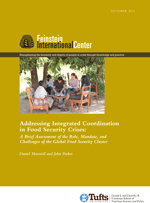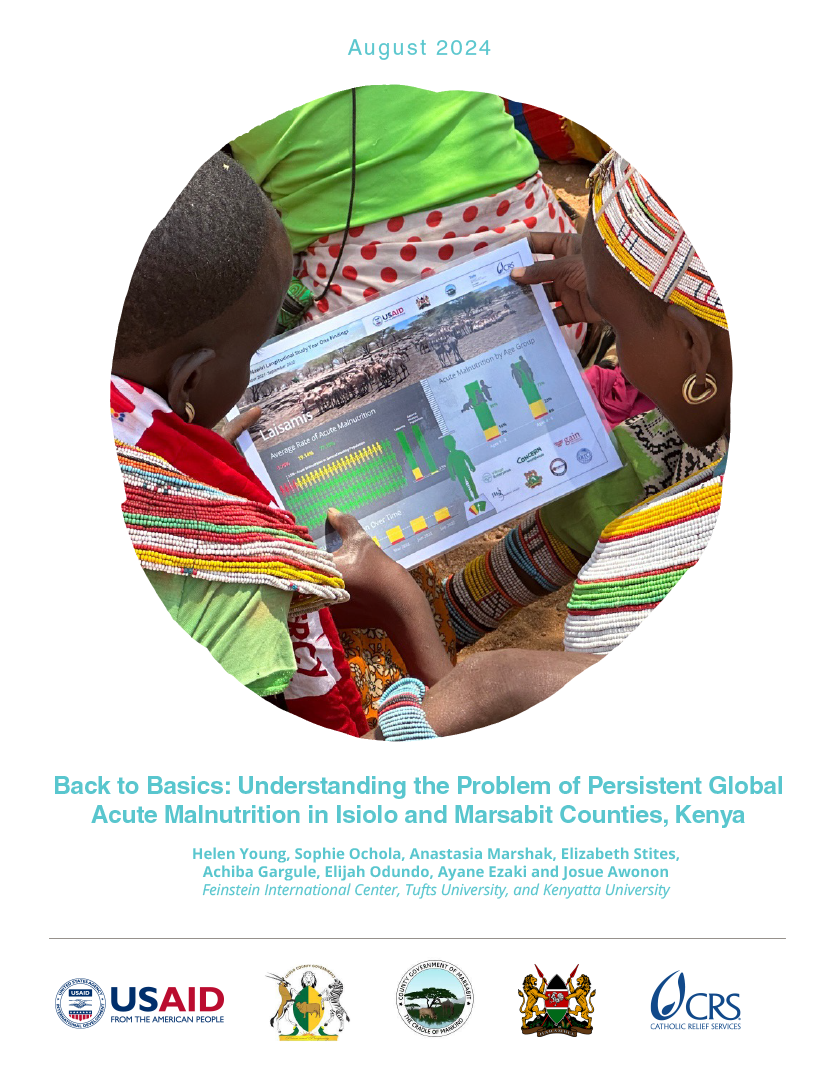In May 2011, the Food and Agriculture Organization (FAO) and World Food Programme (WFP) formally launched the global Food Security Cluster (FSC) as the UN’s global mechanism for coordinating food security responses in emergencies. The creation of the global cluster coincides with a period in which the number of food security actors has continued to grow, the operating environment has become more complex, and the range of responses has required greater levels of skill in analysis, planning, implementation and monitoring. All of this underscores the need for greater coordination.
This paper summarizes the mandate of the newly formed global FSC, presents an analysis of the major issues and challenges it faces, and provides recommendations to donors and the global FSC for possible ways to address these issues. Issues addressed include the leadership of clusters and coordination; coordination linkages and challenges at the global level; transitions, exit and the “boundaries” of food security coordination in emergencies; accountability, effectiveness and funding. Addressing many of these issues will require broader coordination among actors and institutions that do not necessarily have similarly-aligned interests and incentives. However, the global FSC itself can do several things. First, given the myriad issues the global FSC faces, the cluster leadership can provide some strategic prioritizing. Second, while clusters exist for humanitarian purposes, it is clear that cluster coordination is more effective when good preparedness plans are in place and where longer-term concerns are taken into consideration in the acute emergency response. Finally, good leadership in the right place at the right time is a key component of an effective response and effective coordination, and ensuring this leadership is one of the challenges facing the global Cluster. Donors can provide support to the global FSC making clear the priorities they see at the global level and engaging at the country level where capacity exists; by supporting the global FSC to function as a main repository of experience and lessons learned; and by ensuring the expertise for innovative approaches is critical for strategic success.
An analysis of case studies for this paper are contained in a separate annex.







